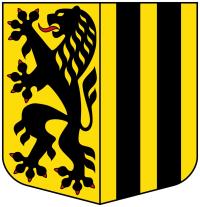Don Shave's Ancestral Family Tree
All Rights Reserved © by Donald J. Shave
Dresden, Saxony, Germanic Holy Roman Empire, Europe
Dresden (in Sachsen) originated as the Slav village of "Drezdzany", meaning "Forest Dwellers on the Plain" on the north bank of the Elbe River First mentioned in 1216, the town on the south bank was founded at a ford by Margrave Dietrich of Meissen as a German colony and the Slav settlement on the north bank, although older, was known as New Town, later as a German town on the south bank as Old Town In 1270 Dresden became the capital of Margrave Henry the Illustrious, and after his death it belonged to the king of Bohemia and the margrave of Brandenburg until it was restored about 1319 to the margraves of Meissen, who chartered it in 1403 Upon the division of Saxony in 1485 it became the residence and capital of the Albertine line of Wettin rulers, later electors and kings of Saxony Dresden accepted the Protestant Reformation in 1539 After a disastrous fire in 1491, the city was rebuilt and fortified. The electors Augustus I and Augustus II modernized the city in the Baroque and Rococo styles in the late 17th and 18th centuries, rebuilding New Town (burned in 1685) and founding Friedrichstadt, northwest of Old Town The Treaty of Dresden (1745), between Prussia, Saxony, and Austria, ended the second Silesian War and confirmed Silesia as Prussian. Two-thirds destroyed in the Seven Years' War (1756–63), Dresden's fortifications were later dismantled In 1813 Napoleon I made the town a centre of military operations and there won his last great battle on August 26 and 27 (see Battle of Dresden) Before World War II, Dresden was known as "the Florence on the Elbe" considered to be one of the world's most beautiful cities owing to its architecture and art treasures. During the WWII it was almost completely destroyed by massive bombing raids that took place on the night of February 13–14, 1945, by an Anglo-American force. The raids obliterated much of Dresden and killed thousands of civilians; various postwar estimates placed the death toll between 35,000 and 135,000 people, but in the early 21st century an official German commission concluded that up to 25,000 had perished. The city continued to be bombarded in raids lasting until April 17, 1945, but little was achieved militarily View sources https://www.britannica.com/place/Dresden-Germany https://en.wikipedia.org/wiki/Timeline_of_Dresden See Germany for more data on historical name changes

The arms that depict the lion of Meissen and the pales of Landsberg have ever since been used by the city. The original pales were probably blue, but were later converted to black. From the 16th century the arms were furnished with a helmet and mantling, but these fell in disuse at the beginning to the twentieth century